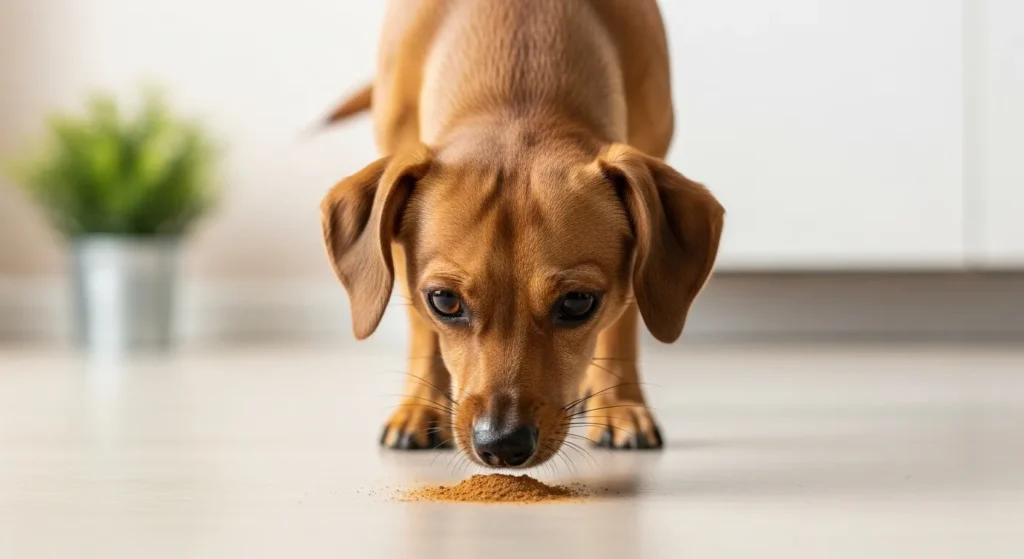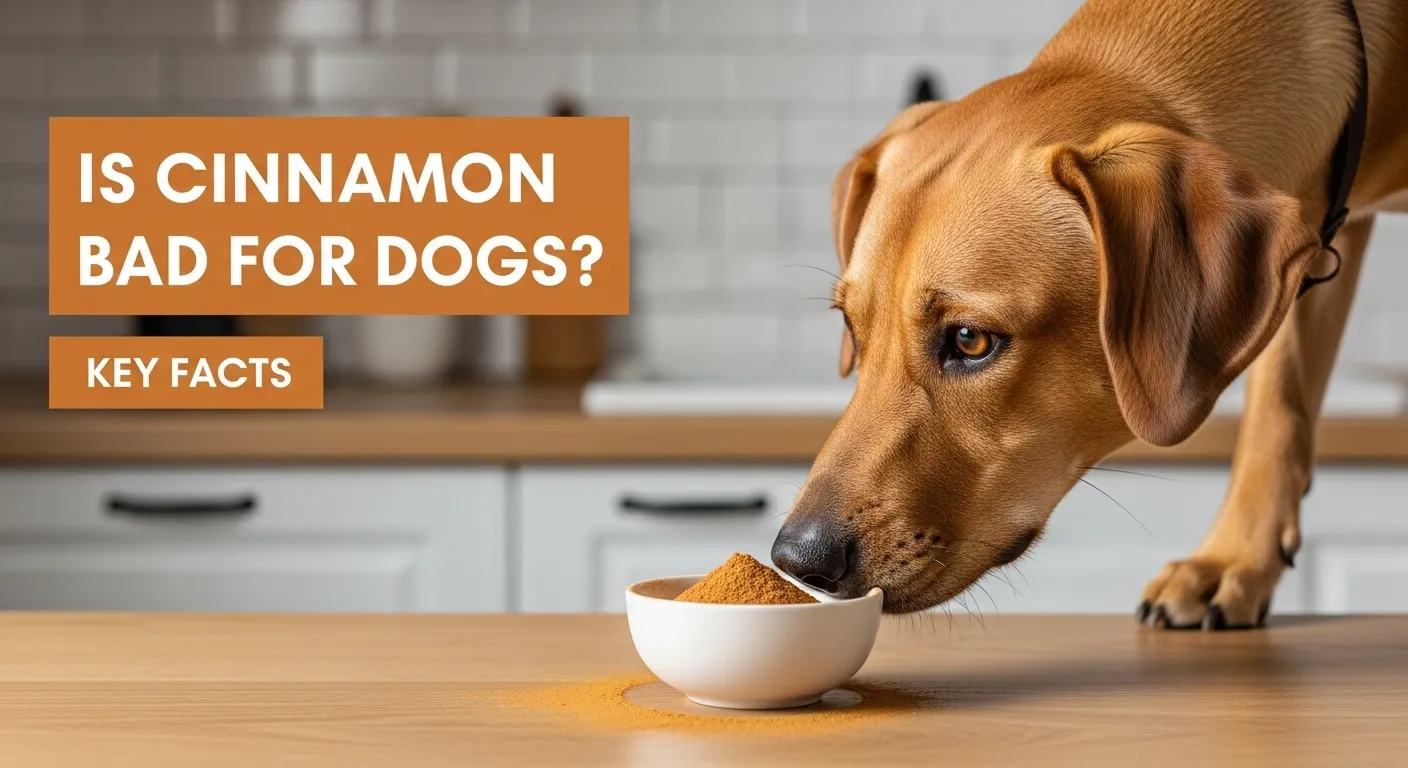Many dog owners wonder about feeding cinnamon to their pets. This spice is common in homes. But is it safe for dogs? This guide looks at the facts. We cover risks, benefits, and safe amounts. All info is current as of September 1, 2025. We base it on vet sources like the ASPCA and AKC.
Is Cinnamon Toxic to Dogs?
Cinnamon is not toxic to dogs in small amounts. The ASPCA lists it as non-toxic. But large doses can cause problems. There are two main types: Ceylon and Cassia. Ceylon has less coumarin, a compound that can harm the liver. Cassia has more coumarin and may be riskier. Always choose Ceylon if you give cinnamon to your dog.

Benefits of Cinnamon for Dogs
Cinnamon may offer some health perks for dogs. It has anti-inflammatory properties. This can help with joint pain. It also fights bacteria and fungi. Some studies show it aids blood sugar control in dogs with diabetes. But these benefits need more research. Talk to your vet before using cinnamon as a supplement.
Risks of Cinnamon for Dogs
While small amounts are safe, too much cinnamon can harm dogs. Powder can irritate the mouth or lungs if inhaled. This leads to coughing or breathing issues. Eating a lot may cause vomiting, diarrhea, low blood sugar, or heart rate changes. Cinnamon essential oil is toxic. It can cause skin burns or liver damage. Avoid cinnamon sticks, as they can cause choking or gut blockages. Dogs with breathing problems face higher risks.
- Allergies: Some dogs may have allergies. Signs include skin itch, swelling, or digestive upset.
- Baked Goods: Cinnamon rolls or bread often have toxic additives like nutmeg, raisins, or xylitol. These can cause seizures or kidney failure.

How Much Cinnamon Can Dogs Have?
Limit cinnamon to small amounts. Most vets say no more than half a teaspoon per day for large dogs. For small dogs, use even less, like a pinch. Never exceed one teaspoon total, as it can cause issues. Base the amount on your dog’s size and health. Ask your vet for exact advice.
| Dog Size | Safe Daily Amount |
|---|---|
| Extra-small (under 10 lbs) | Pinch (1/8 tsp) |
| Small (10-20 lbs) | 1/4 tsp |
| Medium (20-50 lbs) | 1/2 tsp |
| Large (50-100 lbs) | 1/2 to 1 tsp |
| Extra-large (over 100 lbs) | Up to 1 tsp |
Safe Ways to Give Cinnamon to Dogs
Mix cinnamon into your dog’s food for safety. Use it in homemade treats. Avoid human foods with added sugars or fats. Store-bought dog treats with cinnamon are often safe if they list ingredients clearly. Always check labels for harmful additives.
- Homemade Treat Recipe: Mix 1 cup flour, 1/2 cup pumpkin puree, and 1/4 tsp Ceylon cinnamon. Bake at 350°F for 20 minutes. Cut into small pieces.
Learn about other safe foods in Can Cats Eat Bananas?
What to Do if Your Dog Eats Too Much Cinnamon
If your dog eats a lot of cinnamon, watch for signs like vomiting or trouble breathing. Call your vet right away. For essential oil exposure, seek emergency care. The Pet Poison Helpline can help at 800-213-6680. Provide details on how much and what type of cinnamon.
Frequently Asked Questions (FAQs)
- Can dogs eat cinnamon sticks? No. They can cause choking or irritate the mouth. Stick to ground cinnamon.
- Can dogs have cinnamon applesauce? Plain applesauce with a pinch of cinnamon is okay. Avoid versions with sugar or xylitol.
- Is cinnamon good for dog breath? A small amount may freshen breath due to its antibacterial properties. But use dog-specific dental products.
- Can dogs have cinnamon toast crunch? No. It has too much sugar and may contain harmful ingredients.
- Does cinnamon repel fleas on dogs? Some use it as a natural repellent, but evidence is limited. Consult your vet for proven methods.
- Is cinnamon safe for puppies? Puppies are more sensitive. Use very small amounts or avoid until they are older.
For more on cat health, see What Does Catnip Do to Cats?
Conclusion
Cinnamon is safe for dogs in small doses but can cause problems if overused. Choose Ceylon type and watch portions. It may offer minor benefits, but it’s no substitute for vet care. If unsure, talk to your vet before giving cinnamon to your dog. This keeps your pet healthy and happy.
